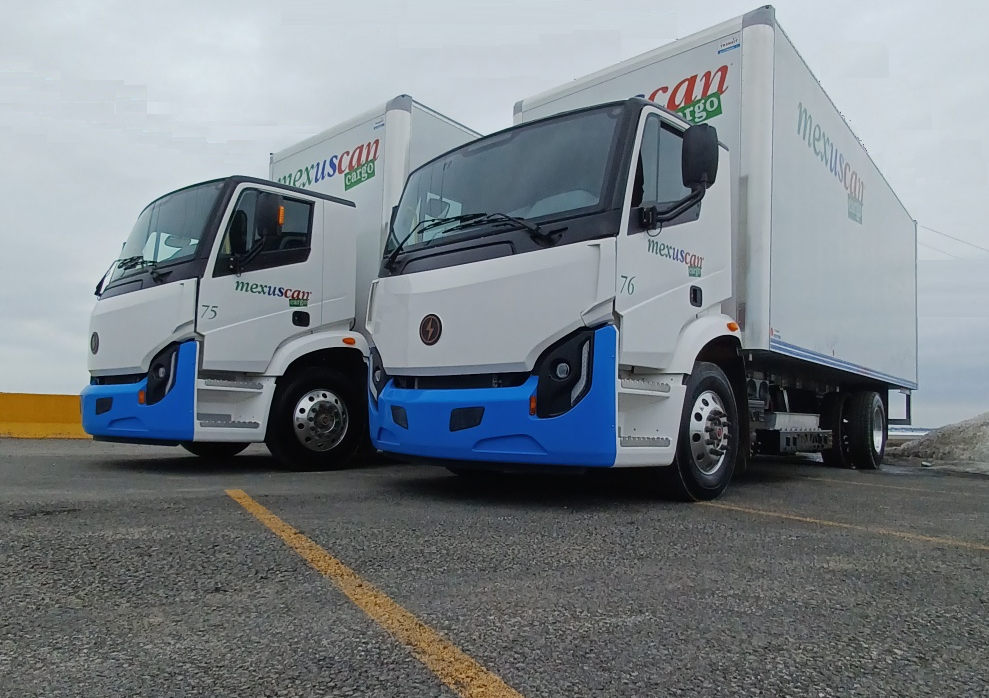In early January, after filing for protection from its creditors and laying off 150 more people, Lion Electric found itself with only 160 employees left and announced they would only service vehicles already sold.
The financial difficulties of the Saint-Jérôme electric truck manufacturer, and the drastic reduction in its workforce, are disrupting its customers’ electrification projects and raising concerns about the continued operation and maintenance of the trucks in use.

When Lion unveiled its Class 8 truck in 2019, it was a truck from the Société des alcools du Québec (SAQ) that sat in a space at Lion’s Saint-Jérôme facility set up for the press conference. It had been announced that the SAQ had purchased Lion’s first Class 8 electric truck.
The relationship between Lion and the Crown corporation has been bittersweet. In 2023, dissatisfied with the vehicle, the SAQ returned it to the truck maker. Then it returned it a second time last summer. In 2021, it was announced the SAQ would take part in the North American Council for Freight Efficiency’s Run on Less – Electric Depot project, but its name did not appear in the list of participants when the project took place in 2023.
State-owned companies like the SAQ are often the first to raise their hand when it comes time to clear technological paths. Such path-clearing is not without risks.
“With electric trucks, we are dependent on the evolution of technology and the availability of vehicles. With our Lion truck, we wanted to participate in advancing [technologies] in this field,” Linda Bouchard, information officer for the SAQ, told TransportRoutier.ca. “After several tests and numerous modifications, unfortunately, the truck acquired still does not meet our needs and requirements, particularly in terms of safety and performance.”
Following Lion’s decision to stop producing electric trucks, the SAQ recovered its vehicle at the end of December and wants to revitalize as many of its materials and parts as possible. For example, the SAQ plans to recover the body and tailgate to reuse them on one of its renewable compressed natural gas trucks that will arrive soon.
“It is important to understand that the end of testing with this truck is not an end in itself,” insists Bouchard. In the coming months, the SAQ plans to acquire two other electric utility vehicles, an electric yard tractor and six zero-emission renewable natural gas trucks. These will be in addition to the eCascadia tractor that the SAQ has been operating since October 2023.
Lost Lions
The Nationex courier company has acquired three Lion6 trucks as part of its green shift. These trucks make pickups and deliveries in the Montreal region.
“We are a longtime partner of Lion, but the situation still concerns us,” Edwin Richard, director of special projects and sustainable development at Nationex, told us. “We consider the warranty to be gone. We wanted to bring a truck to Quebec City, but we will instead keep everything close to our garage, where we can find replacement solutions. We are at a stage in Nationex’s electrification where we have to make smart choices.”
Lion’s difficulties don’t change Nationex’s electrification goals, but they do modify its strategy. “The next start-up — the next company that doesn’t have a few years behind it — probably won’t be able to sell us trucks. We’re going to turn to the big traditional manufacturers,” says Richard.
Mexuscan Cargo, a Sainte-Martine-based carrier, acquired two Lion trucks in 2021 as part of a specific transport contract from Recyc-Québec for the collection and transport of used tires using electric vehicles.
“When Lion filed for creditor protection, we immediately received an email from its service department. As far as service goes, there is no change,” says Marie-Chantal Goyette, owner of Mexuscan Cargo. “These are trucks that are used for a very specific purpose within the framework of this contract. If there are any breakdowns, I do not jeopardize all of my operations.”
If it happened that Mexuscan Cargo could no longer maintain or repair its trucks, the carrier would then have to discuss it with Recyc-Québec and find a solution.
The solution could come from Gamotech, a Blainville company specializing in high-voltage power conversion, which works mainly in the municipal sector.
“We are currently electrifying municipal maintenance trucks, which led us to work with Lion trucks, particularly with the City of Saint-Sauveur,” explains Olivier Brault, CEO of Gamotech.
Alternative options
The City of Saint-Sauveur was having some issues with its Lion truck and, since it was out of warranty, Gamotech was able to modify it and fix some issues. The company also received training from Lion on how to diagnose the system. Before the holidays, Gamotech put out a call to Lion truck owners, notifying them that it could make the necessary repairs and updates to keep the trucks running.
“We went to do truck and bus repairs, but in the second week of January, Lion reappeared to provide service. We remain attentive, we are trained, we are ready and we have the skills,” assures Brault, who is sending the message to fleet owners who may encounter difficulties with the maintenance of their electric vehicles.
As for trucks still under warranty, Brault says he has not reached that point in his discussions with Lion. “There is a bottleneck in the maintenance and repair of electric trucks in general; we are trying to see how we could have one more service point in electrification.”
According to the testimonies we have collected, Lion technicians are active in the field to take care of the maintenance and repairs of their trucks. It remains to be seen what will happen in the future.
